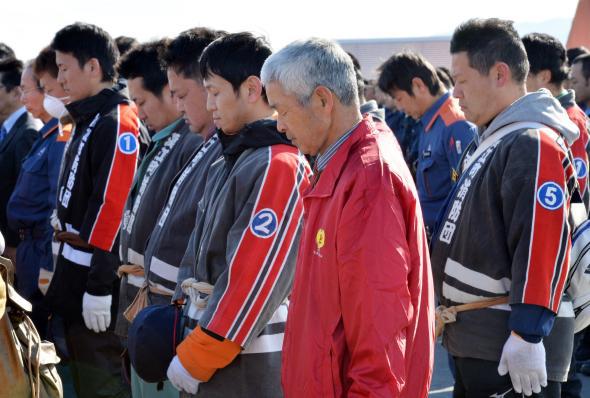Remembrance ceremonies are being held today in Tokyo and towns around Fukushima to mark the third anniversary of the earthquake, tsunami, and nuclear disaster that claimed more than 18,000 lives.
I noted last month that Fukushima seems to have had less of an impact than many expected on the growth of nuclear power around the world, but its effects on the Japanese population still linger.
About 100,000 people are still living in temporary housing, and Japan has so far built only 3.5 percent of the new houses promised to people in heavily affected prefectures.
CBS reports that in Koriyama, a town about 40 miles from the nuclear plant, many parents are still afraid to let their children play outside. There’s also an ongoing debate about whether higher-than-normal rates of thyroid cancer in children are connected to nuclear radiation or simply more rigorous testing.
Then there’s the psychological impact. A Brigham Young University study released last week found that a year after disaster, more than half of the citizens of Hirono, a heavily affected town near the plant, showed “clinically concerning” symptoms of post-traumatic stress disorder. Two-thirds showed symptoms of depression.
Many of the residents, who had an average age of 58, were still living in temporary housing when the study was conducted.
It’s not quite clear what all this will mean for the country’s politics. Prime Minister Shinzo Abe aims to restart the country’s nuclear program—all of the country’s 48 reactors are currently offline—but polls show that the public is still wary about the idea. But Abe is generally popular, and the economy is showing some long-awaited signs of life, so the government may be able to absorb the anti-nuclear backlash.
The disaster didn’t have much of an impact on attitudes toward nuclear power in the United States, though apparently authorities were worried it would. A recently published FOIA investigation by NBC shows that in the days following the disaster, “staff at the U.S. Nuclear Regulatory Commission made a concerted effort to play down the risk of earthquakes and tsunamis to America’s aging nuclear plants.”
